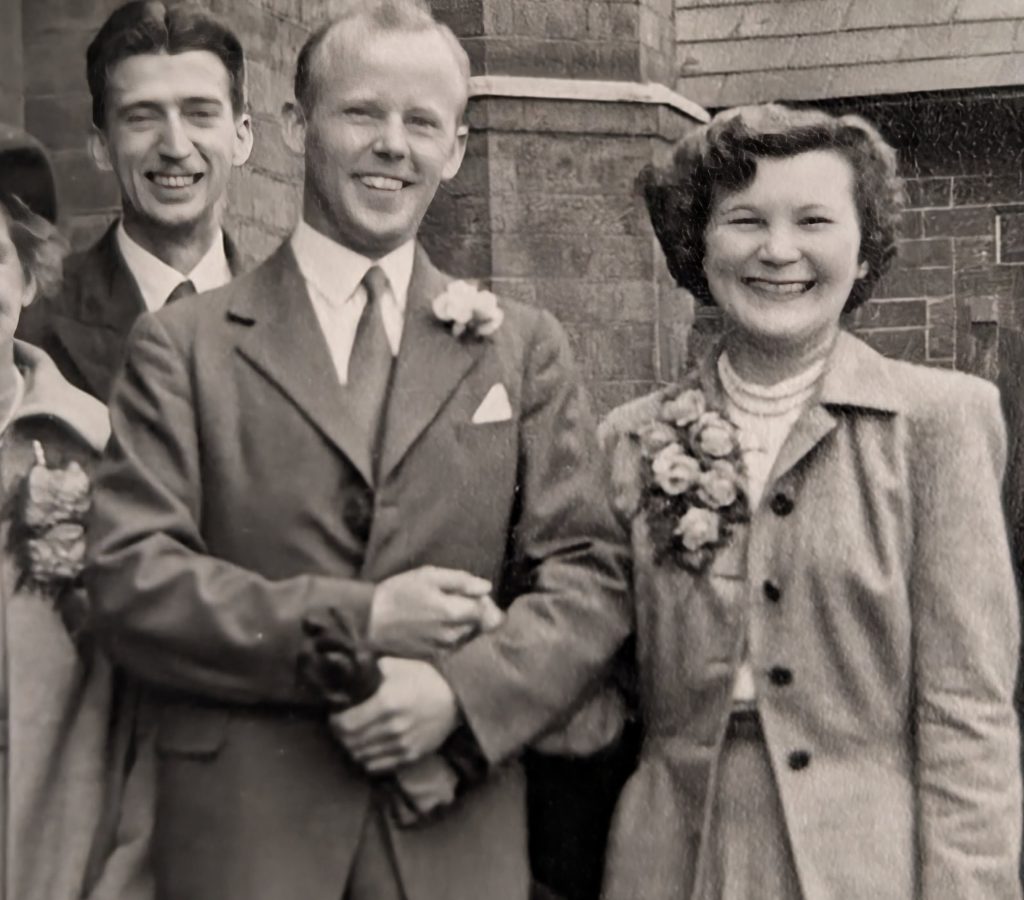
In the shadow of global conflict, three young lives—Ron Jeneway, Rowland Cook, and Dorothy Chetah (née Young)—were shaped by the urgent, determined efforts to produce one of the most iconic aircraft of all time: the Supermarine Spitfire.
Ron Jeneway was just 14 years old when he left Bitterne Park School, Southampton in 1937 to become an apprentice at Supermarine. He began working on seaplanes, but as the spectre of war loomed, he quickly transitioned to the development of the Spitfire. At his induction, Ron met Rowland Cook from Eastleigh. Ron trained as a fitter, while Rowland took up the path of a draughtsman. Though their roles differed, a strong friendship formed that would endure for decades.
Living on the same street as Ron was Dorothy Young. She too joined Supermarine, working as a secretary in the office. Though her connection with Ron began in the neighbourhood, it would deepen in the most harrowing of circumstances.
During the war years, long hours and fire watch shifts were part of their daily reality. There are stories of Ron ‘shelter hopping’ during bombing raids, desperately searching for a missing sister—thankfully found safe. There were accounts of entire parts of Spitfire production being moved overnight to avoid Luftwaffe bombs. But like many of their generation, they didn’t speak often or at length about the war. Yet the impact of those years ran deep.
Rowland once shared a vivid memory of being sent to Newbury for several months, where he and Ron helped retrain a company of cabinetmakers to produce Spitfire components. Billeted with a local family who had two teenage daughters, the young men were welcomed despite the vulnerability it must have posed to the hosts. Rowland described those months warmly, a reminder of how resilience and humanity persisted even in wartime.
One of the most dramatic memories came from Dorothy. She once quietly revealed, “You know he saved my life, don’t you?” She was speaking of Ron.
During a severe daytime bombing raid, Supermarine was hit. As the factory was evacuated, Ron spotted Dorothy in the chaos. Without hesitation, he grabbed her hand and ran. A blast tore through the tunnel behind them, blowing off Dorothy’s outer clothing and causing permanent deafness in her left ear. Ron wrapped his coat around her, sat her safely on a railway embankment, and went back into the smoke to help others. Many did not survive that day. Whether it was fate or heroism, Dorothy believed Ron had saved her life.
After the war, life led them in different directions, but their bonds remained strong. Ron married Nancy, had four children, and after National Service in the Tank Corps, built a family business in the 1960s. Rowland married Pam, moved to Somerset, and raised two daughters while continuing his career as a draughtsman. Dorothy married Bill and became a legal secretary in Southampton.
Ron and Rowland were best men at each other’s weddings. Rowland and Dorothy became godparents to Ron’s children. Their lives were intertwined by war but sustained by friendship and mutual respect. Rowland and Dorothy lived into their 90s—remarkable lives remembered with deep affection, particularly by godchildren.
Their story is a powerful reminder of the quiet courage of those behind the scenes. Not every hero flew a Spitfire—some built them, supported their production, and ran toward danger when others fled. These were ordinary people in extraordinary times, who carried on with humility, humour, and strength.
As we reflect on the wartime generation, we are reminded of their quiet resolve and belief in a better future—for all of us.
Privacy Policy & Cookie Policy
All content © 2025 National Spitfire Project National Spitfire Project, Registered Charity No. 1158286
Website designed and built by MindWorks Marketing